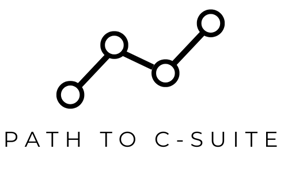Tips for Preparing for a Management Level Interview
3/14/20254 min read


Understanding the Role and Expectations
Preparing for a management level interview necessitates a comprehensive understanding of the specific role for which you are applying. This begins with an in-depth research of the company, its values, and the overall corporate culture. Familiarizing yourself with the company’s vision and mission will not only enrich your knowledge but also help you articulate how you align with its objectives during the interview.
Equally important is a careful analysis of the job description. This document typically outlines the essential responsibilities associated with the management position, as well as the required competencies. Identifying these competencies—from leadership and communication skills to strategic thinking and conflict resolution—is critical. Highlighting your past experiences that demonstrate these skills can significantly bolster your candidacy. Understanding the expected outcomes of the role will allow you to illustrate how your experience aligns with the organization's goals.
Another key element to consider is the organizational hierarchy. Recognizing where the management position fits within the broader framework of the company can provide insights into expectations, reporting structures, and how success is measured. It can also inform you about potential challenges you may face, and how your leadership style can effectively address them. By assimilating this information, candidates not only position themselves as well-prepared but also as adept at navigating the complexities of management.
Ultimately, your ability to demonstrate a comprehensive understanding of the role and its expectations will be pivotal in making a positive impression during your interview. Candidates who can effectively communicate their knowledge of the position and the company are more likely to resonate with interviewers seeking a strategic fit for their management team.
Showcasing Leadership and Management Experience
In a management level interview, effectively showcasing your leadership and management experience is crucial for proving your suitability for the role. A candidate should craft a narrative that highlights significant achievements, the challenges faced, and the strategic actions taken in leading teams toward success. This storytelling approach not only engages the interviewer but also demonstrates your capability to navigate complex situations. Begin by identifying key experiences from your career that align with the expectations of the management position. Select examples that illustrate your strengths, such as your ability to inspire teams, drive results, and facilitate collaboration.
When sharing these stories, being specific about the measurable outcomes is paramount. Discuss the impact of your leadership by providing data, such as percentage increases in team performance, project completion rates, or improvements in employee satisfaction. For instance, if you implemented a new project management approach that resulted in a 25% increase in productivity, mention this metric to strengthen your argument. This not only emphasizes your effectiveness as a leader but also establishes credibility in your capabilities.
Moreover, it is important to prepare for questions regarding your management styles, conflict resolution strategies, and decision-making processes. Reflect on how your leadership approach might align with the company’s culture and objectives. Prepare to discuss ways in which you handle disagreements within a team setting and how you facilitate discussions to maintain a productive work environment. By doing so, you can illustrate your thoughtfulness in managing people and processes. Overall, emphasizing your leadership experiences and strengths, backed by tangible achievements, will optimize your candidacy for a senior management role.
Preparing Behavioral and Situational Responses
Behavioral and situational interview questions are key components of the interview process for management-level positions. These types of questions allow interviewers to evaluate a candidate’s managerial competencies, decision-making skills, and problem-solving abilities. To excel in this area, candidates must prepare methodically by understanding the concepts and expectations associated with these interview formats.
One effective method for structuring responses to behavioral questions is the STAR technique, which stands for Situation, Task, Action, and Result. This framework helps candidates present their experiences in a clear and organized manner. Start by describing the specific situation you faced, followed by the tasks that were necessary to address the scenario. Next, elaborate on the actions you took, detailing your thought process and the skills you employed. Finally, conclude with the results of your actions, emphasizing what you learned and how it contributed to your professional development.
Anticipating potential interview questions is another crucial aspect of preparation. Research common behavioral questions specific to management roles, such as those related to conflict resolution, team leadership, and project management challenges. Craft specific examples that highlight your skills and experiences in these areas, ensuring that you weave in relevant metrics or outcomes to bolster your responses. For instance, describe a time when you successfully motivated a team to meet tight deadlines and highlight the final results achieved.
Additionally, practice articulating your stories with confidence and clarity. This skill is vital, as it enhances the overall impact of your narrative. Incorporating elements of storytelling not only makes your answers more engaging but also helps the interviewers remember your experiences more vividly. By preparing effectively for behavioral and situational questions, you can significantly enhance your performance in a management-level interview.
Practicing Interview Techniques and Maintaining Confidence
Preparing for a management level interview requires more than just reviewing potential questions; it necessitates the development of effective interview techniques and a robust sense of self-confidence. Engaging in mock interviews can be an extraordinarily beneficial practice. Candidates can approach friends, peers, or mentors to conduct these mock sessions, mirroring the interview environment. By eliciting constructive feedback, applicants can identify areas for improvement in their responses and fine-tune their communication style. This practice not only helps in mastering answers but also builds familiarity with the interview process, which can alleviate anxiety.
Managing interview anxiety is essential for projecting confidence. Effective strategies may include visualization techniques, where candidates imagine themselves successfully navigating the interview. Additionally, practicing mindfulness or relaxation exercises prior to the interview can aid in calming nerves. It's imperative to maintain a positive mindset throughout the preparation. Candidates should remind themselves of their strengths and the unique qualifications that they bring to the table, reinforcing a sense of self-worth and capability.
Body language plays a pivotal role in communication during interviews. Maintaining eye contact, sitting up straight, and utilizing gestures can convey confidence to the interviewer. Moreover, candidates should pay attention to their verbal communication, including tone and pace, as these aspects significantly impact how messages are delivered and received. Establishing a strong personal brand also influences perceptions; it involves clearly articulating one's values, experiences, and enthusiasm for the prospective role. Demonstrating genuine passion not only engages interviewers but also builds a lasting impression. Overall, diligently practicing interview techniques and fostering self-confidence are integral to succeeding in a management level interview.
Contact & About
Newsletter
© 2025. All rights reserved.
Legal
About Us


